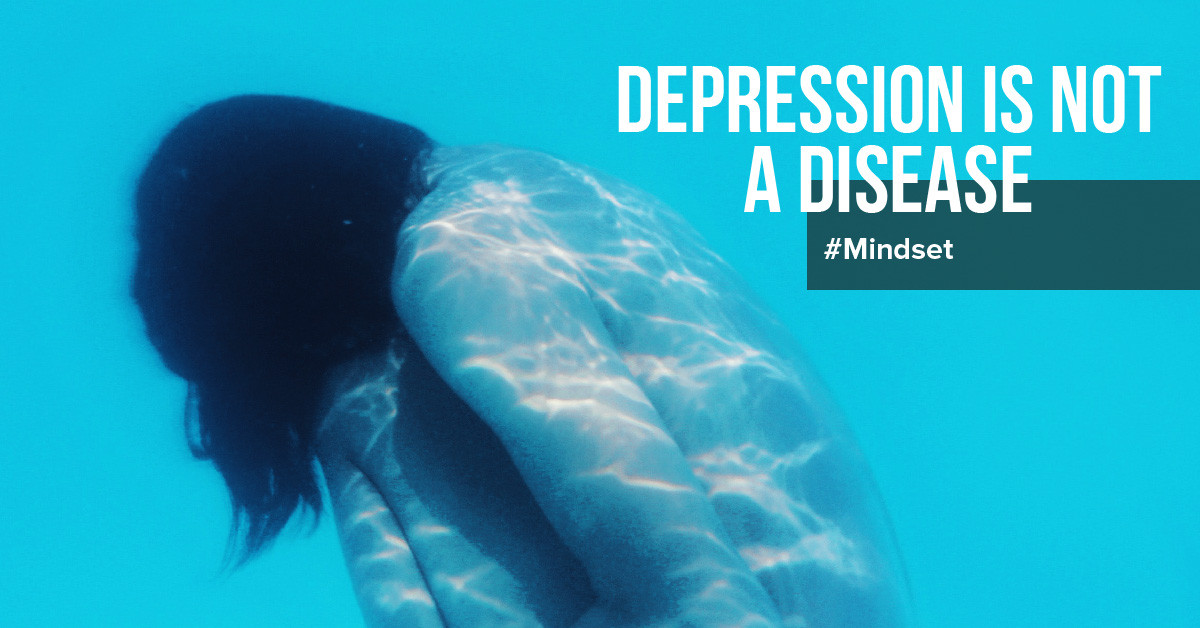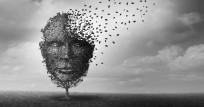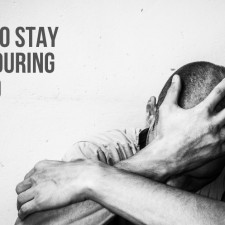Is Depression a Disease?
Are you aware that 340 million people worldwide suffer from depression? That 1 in 5 people has had a depressive episode? Do you know what that means? That every 5th person you know has or has had, a depression! The numbers are staggering, but even though the problem is as common as the flu, it is still a taboo. We don’t want to talk about it.
We all know why that is, don’t we? Modern science tells us that depression is a disease, a disease of the brain and that this disease says something about who we are: weak, vulnerable, not as severe as the rest, worthless. Who would want to talk about that?! But what if the ‘common’ knowledge as we know it isn’t fully accurate?

Is Depression a Disease? Researching Depression
In 2007 I embarked on a modeling research project trying to map the inner experience of depression. I wanted to do that because I realized that we had two ways of talking about depression: From the medical perspective: Depression as a disease.
From the symptomatic perspective where depression is described as an accumulation of symptoms: feeling meaningless; eating more or less food; somber feelings and so forth.
As much as that these descriptions are interesting, they told me nothing about what a depressed person experiences ‘on the inside’. And specifically, the experience on the inside interested me because I assumed that this ‘experience’ would lead me to the solution of the problem.
I spoke to hundreds of people with depressing thoughts and feelings. I also asked hundreds more who had somber thoughts and feelings how they experienced their depressed state, and after a while, some specific patterns started to emerge.
Is Depression a Disease? From the Causes of Depression to the Experience of Depression.
I noticed specific Causes that triggered depressive episodes. Causes that I could not find anywhere in the common literature. Causes related to a setback; to a shift in self-image; to loneliness. And these causes change the inner experience of who you are, what to expect, and your place in the world.
I started to notice that all of my depressed clients talked specifically about how their feelings of loneliness were not related to anybody being with them in the ‘real’ world. That even when all their loved ones were around in the ‘real’ world, they still experienced a deep sense of loneliness. As if they did not experience any close connections.
I noticed that all of my clients talked about darkness as if they were talking metaphorically about some dark experience. They all spoke about the future as if it did not exist anymore. They all spoke about how their experiences became meaningless as if nothing held meaning anymore.
Most of them talked about wanting to achieve big wonderful goals and how simple it should be to attain them like, ‘I just want to be happy’. But they failed every time. They talked about how they felt separated from the world around them as if there was a barrier between them and the world.
They talked about being and feeling disconnected as if they existed separate from the world. They spoke about helplessness as if they could not influence any of it. They talked about the past and loss of future perspective as if they lost their sense of time…
What do most People with Depression Experience?
- Loneliness
- A sense of darkness
- Feeling meaningless
- Feeling a barrier between them and the world
- Lost sense of the future
- Disconnected
- Helplessness
- Setting unachievable goals
- Losing the sense of time
Is Depression a Disease? Working with the Mind of Depressed People
What if all they talked about is real? I mean what if all the experiences described are not ‘just words’ but actual descriptions of their inner experience, of their inner landscapes. What if we humans live in two landscapes at the same time? A landscape of our inner experience: the inner landscape and a landscape of our outer experience: the outer landscape.
What if we can’t determine between the two? I mean what if it would be true that we confuse these two landscapes and that our expressions are factual, actual descriptions of an inner landscape we navigate in, but this experience gets lost because we focus on the outer landscape of our experiences?
If that were true, our approach to depression would change, wouldn’t it? It would draw us to questions like:
- What do you experience in front of you when you are depressed?
- Or behind you or even next to you?
- Where is everybody in your inner experience? Where are they located?
- How dark is it on the inside of your experience?
- Are you trapped in anything? If so, in what?
- Where is your attention? On the inside or the outside landscape?
- How big is the disconnection between you and the world? And where is it?
Just notice what happens when you explore these questions, just see how your attention shifts and how you can get a sense of how your situation can, in fact, change…
Is Depression a Disease? No, it’s a mindset that can be treated with coaching!
It took me ten years to unravel the inner landscape of depression and a couple of years to develop techniques to specifically work with someone’s inner landscape directly. The effect? A tremendously effective method of working with depression!
Do you want to know more? Read my book: Happiness is Depressing (out in English soon): and if you’re a therapist or coach come and join my 2-day masterclass: Depression Coaching. You will be astounded by what you will learn.
Wassili Zafiris Mental Coach
-
Wassili ZafirisCoaching, TrainingUS$ 3,81 pm
-
Pierre HoltzhausenFull time Life CoachUS$ 0,67 pm
-
Rose Marie NelsonLife CoachUS$ 2,50 pm
-
Meliss AkaydnPsychologyUS$ 0,39 pm
-
Anouk ElzermanPsychologistUS$ 0,39 pm
-
Emma GovenderTutor/Life CoachUS$ 0,08 pm



































